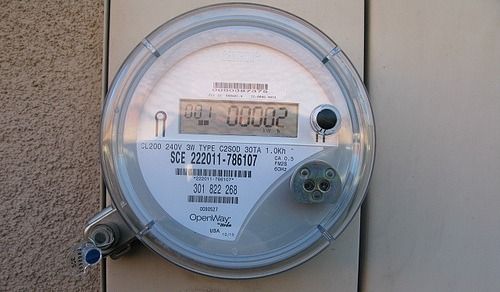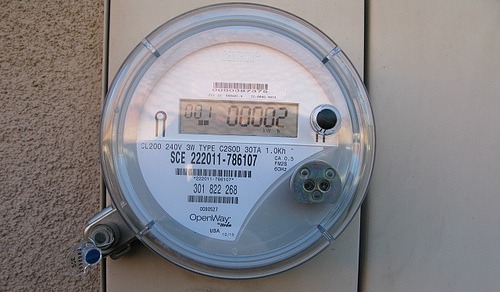DECC announces UK smart meter rollout. Think tank doubts the power of incentives
30 million homes and businesses will have smart meters installed by 2019, saving the UK £7.3 billion in energy bills, say the Department for Energy and Climate Change. However, UK think tank, Green Alliance believes that the government’s “bold environmental ambitions” are failing, and the incentives offered need to be backed by stronger policy.

 30 million homes and businesses will have a smart meter installed by 2019, saving the UK £7.3 billion, says Department for Energy and Climate Change, but UK green think tank, Green Alliance says the government’s “bold environmental ambitions” are failing.
30 million homes and businesses will have a smart meter installed by 2019, saving the UK £7.3 billion, says Department for Energy and Climate Change, but UK green think tank, Green Alliance says the government’s “bold environmental ambitions” are failing.
53 million smart meters will be installed, a crucial step in delivering the UK’s energy security and low carbon future, giving consumers real-time information on their energy consumption and saving the average consumer around £23 per year on their energy bill.
Chris Huhne, Energy and Climate Change Secretary said: “Smart meters are a key part of giving us all more control over how we use energy at home and at work, helping us to cut out waste and save money.
“In combination with our plans to reform the electricity market and introduce the Green Deal for home and businesses, the rollout of smart meters will help us keep the lights on while reducing emissions and getting the best possible deal for the consumer.”
The national rollout of smart meters will take place in two phases, the first phases ensuring groundwork is done before the second phase of mass rollout, expected to begin in 2014 and end in 2019. The DECC say it will be an end to estimated billing.
However, so called nudge policies, focusing on the changing the context in which people make decisions, is not enough, according to a new report by Green Alliance, a UK green think tank.
They say through incentive schemes including the Green Deal and Smart Metering, the government is offering too much “carrot” and not enough “stick”.
They believe that people may be more likely to change in order to prevent a loss, for example a government tax against worst offenders, than securing a gain.
In the research, ‘Bringing It Home’, Green Alliance followed six households, in 2010, examining their approaches to water, waste and energy, to see if existing policies were helping people to live more sustainably.
Using the research and national statistics, they found that while households are prepared to make changes when it is made easy and normal, few make the effort when it is difficult, expensive or unusual.
For example the of the families examined recycling was common, but reducing or separating food waste was not, and while there was an awareness of a need to save energy, there was little awareness to save water.
Similarly of the houses owned by the occupants, all had had some form of insulation installed, but only one house had switched to an energy efficient boiler and none has consider small-scale renewables.
The report states that the gap between aspirations and reality will only be narrowed if policy-makers combine individual behavioral measures with policy changes to help transform attitudes.
Green Alliance believes the government should expand on their ‘4Es’ model, developed by Defra. The model aims to combine factors to ‘encourage’, motivating people; ‘enable’, making change possible; ‘engage’, gaining permission and support for policies; and ‘exemplify’, leading by example.
The report concludes that for real drive towards sustainability government must first set out their vision, rethink the markets within which people make their choices on energy, waste and water, and use behavioral insights to develop a smarter policy.




